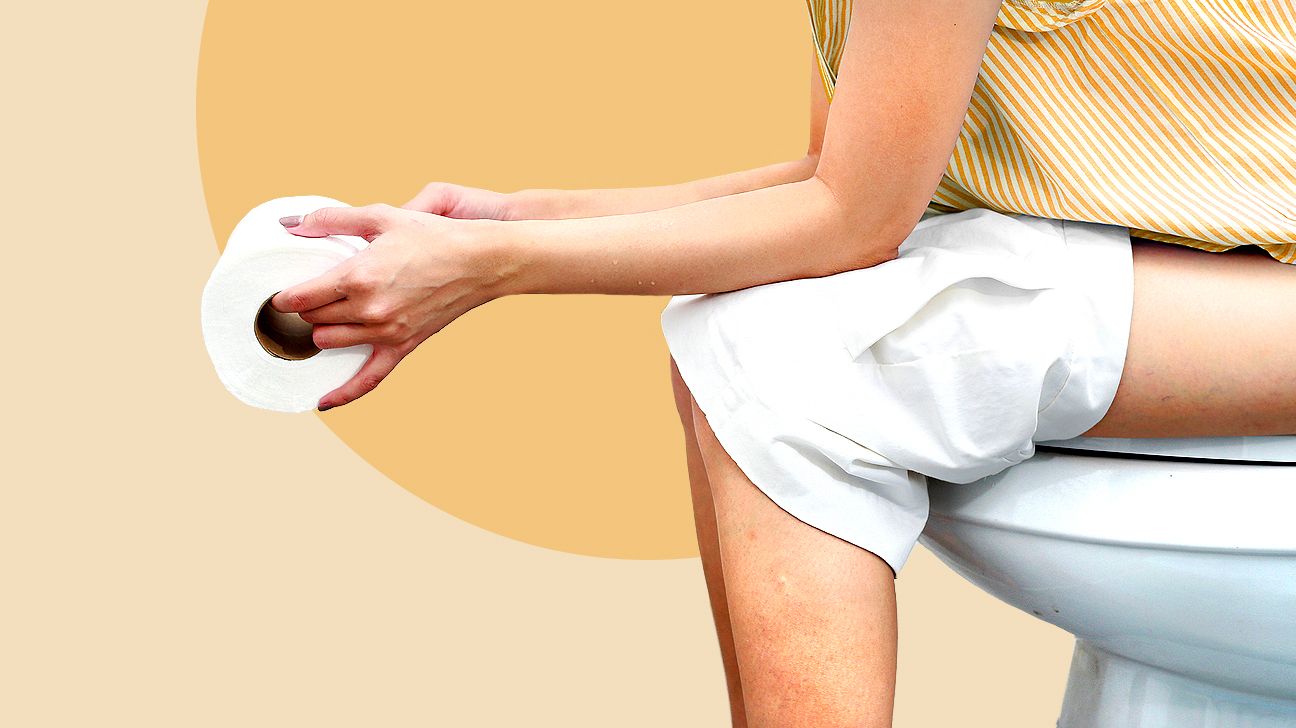What Your Poop Means About Your Health When You Have IBD
Content created for the Bezzy community and sponsored by our partners. Learn More

Whether we care to talk about it, everyone poops. If yours is looking, smelling, or feeling a little different it may be due to your IBD.
While it may feel embarrassing to talk about your bowel movements at times, it can be helpful for identifying any unusual symptoms. This is especially true when you have inflammatory bowel disease (IBD), which includes Crohn’s disease and ulcerative colitis. Changes in bowel habits can clue you into many issues related to IBD.
Here’s the scoop on what your poop means and when it’s time to talk with your doctor.


Red poop
Red poop can be alarming to see, as it may be a sign of bleeding somewhere along the gastrointestinal (GI) tract.
On the other hand, eating red foods such as beets can cause red poop. Sometimes, blood from menstrual bleeding can be mistaken for GI bleeding, too.
If you didn’t eat something red and you don’t have your period, it’s important to note whether the blood is mixed into your poop or if it’s just on the toilet paper. You’ll also want to note if you’re experiencing any pain.
If you have IBD, blood may be a sign of a flare, especially if you experience pain and weight loss.
Painless bleeding with bright red blood on the toilet paper may be a sign of internal hemorrhoids. Pain around your anus and bright red blood on the toilet paper may indicate external hemorrhoids or an anal fissure.
Black poop
Dark stools can be a sign of upper GI bleeding, such as from the esophagus, stomach, and the beginning of the small intestine.
Sometimes, Crohn’s disease can affect the upper GI tract and cause bleeding. Taking Pepto-Bismol, activated charcoal, iron supplements, or eating dark foods can also cause dark stools.
Be sure to mention dark stools to your doctor, especially if you feel fatigued or short of breath. These can be signs of iron deficiency anemia from bleeding over time.
Loose poop with a strong smell
Clostridium difficile (C. diff) is a bacterial infection of the GI tract that’s common in people with IBD, especially after antibiotic use. It also gives poop a distinct smell.
Let your gastroenterologist know if you notice the following symptoms, especially after taking antibiotics:
- new onset diarrhea
- abdominal pain
- fever
- nausea
C. diff can present similarly to an IBD flare-up, or it may also lead to a flare.
Hard poop
Harder stools can be a sign of constipation. They may be hard to pass, look like pebbles, and leave you straining.
Causes of constipation include:
- not eating enough fiber
- dehydration
- slower movement, or motility, of your digestive system
- taking certain medications
People with IBD are more likely to experience diarrhea than constipation, but it’s not unheard of. Narrowed stools or constipation can be a sign of an intestinal stricture in people with Crohn’s disease.
If you experience constipation regularly, mention it to your doctor. To prevent constipation, try to stay hydrated, exercise, and eat fiber-rich foods such as fresh fruits, vegetables, and nuts.
If you have trouble tolerating fiber, try blending fruits and vegetables into smoothies and soups.
Pain while pooping
An occasional painful poop can be normal with IBD. But if you always experience pain with bowel movements or suddenly experience an increase in symptoms, it may be a sign of an IBD flare-up or irritable bowel syndrome (IBS).
Many people with IBD also have IBS, which classically causes pain and bloating. IBS can cause diarrhea, constipation, or both, and it’s sometimes hard to tell if symptoms are from IBD or IBS.
There are many treatment approaches for IBS, including diet, exercise, stress management, and sometimes medication.
Women often experience cramps and loose stools or diarrhea right before their period.
This is usually normal. However, if the pain doesn’t go away a few days into your period and it prevents you from going to school or work, you may have endometriosis, a condition in which endometrial tissue grows outside the uterus.
If your bowel symptoms seem to be related to your period, be sure to speak with your gynecologist.
Speak up if you have new or ongoing GI symptoms
It’s important to look at your poop regularly and be aware of any major, lasting changes.
An increase in symptoms may go away quickly, but if the symptoms persist, contact your GI doctor before a flare worsens. You may need an increase in your medication, a change in treatment plan, and some nutritional guidance.
It’s important to talk with your doctor about any bowel symptoms you may be experiencing, even if it may feel embarrassing to do so. Your doctor is there to help you. There are so many factors that contribute to GI symptoms and many options to help you feel well through medication and dietary and lifestyle changes.
Originally written August 01, 2020
Medically reviewed on May 08, 2024
6 Sources


Like the story? React, bookmark, or share below:
Have thoughts or suggestions about this article? Email us at article-feedback@bezzy.com.
About the author